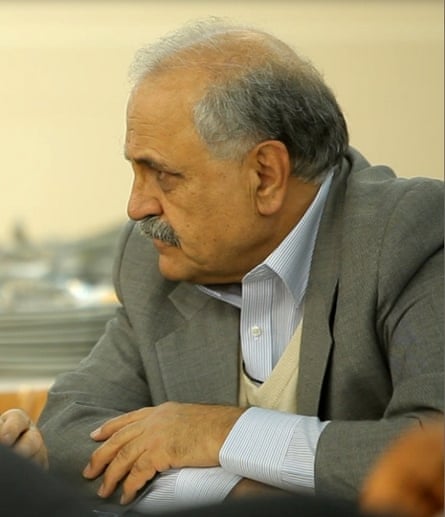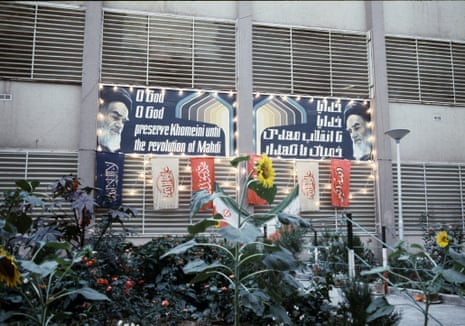In summer, ward eight of Evin prison stinks more than usual. It is hot and unbearable as there is no air conditioner and the water coolers do not work properly. The cells are filthy and infested with beetles and bugs, particularly when temperatures rise.
My father Mohammad Hossein Rafiee, a retired University of Tehran professor, has been detained there for two months. This section of Tehran’s notorious prison is populated mostly by those convicted of financial crimes, drug traffickers and pirates - mainly from Somalia. It may seem counter-intuitive, but my father was arrested for supporting President Hassan Rouhani’s nuclear programme at a time he needed it most.
The charges against my father mean he should have been considered a political prisoner and held in ward 350, which is populated by prisoners convicted of such charges. But authorities seem to want to put more pressure on some political prisoners by holding them in some of the worst conditions faced by other prisoners.
My father says there are 28 prisoners in his 20-square-metre cell, 18 Africans and ten Iranians. This means they cannot lie down, and there are just six three-bunk beds available. Ten, including my father, sleep on the floor of hallways and the hossainiya, a religious congregation hall.
“Prisoners sleep everywhere,” my father described to me on the phone, “even close to the washrooms, packed like sardine conserve. I wonder if we are in a prison or a torture chamber.”

He says there are just five toilets and showers for more than 200 prisoners, who have to queue and take turns, while warm water is not always available.
Shortages of medicine in the prison clinic and a lack of access to treatment are other disregarded rights. My father says there are many prisoners fearing they have HIV or hepatitis who have not seen a doctor much less received treatment. Due to overcrowding, diseases quickly spread. Prisoners need to wait to see a general practitioner, and seeing a specialist or dentist can take several months.
These facts have been reiterated by Ahmad Shaheed, the UN Special Rapporteur on human rights in Iran. In his latest report, in March, Shaheed has declared that many prisoners who urgently need medical care are deprived of appropriate treatment in clinics and hospitals outside the prison.
Hassan Ghazizadeh Hashemi, the minister of health and medical education, has acknowledged the poor condition of prisons as well. During his visit to Ghezel Hesar prison in Karaj in March 2015, the minister admitted there was overcrowding, inadequate sanitation and food, and that prisons were struggling to manage infectious diseases including Aids. But he also stated that no budget had been allocated in 2015 for improvements.
My father is also a member of Iran’s Melli-Mazhabi Coalition, an opposition party inside the country, as well as the National Peace Council, founded in 2008 by the lawyer Shirin Ebadi to opposed military conflict over the nuclear issue.
He was arrested in the street on 16 June, 2015, with no warrant, and taken to Evin, not long after he published an article in support of nuclear negotiations and the November 2013 Geneva interim deal between Iran and world powers. He was accused of “distributing propaganda against the regime”, and on 25 May 2015 he was sentenced to six years in prison and banned from political and journalistic activities for two subsequent years.
His detention appears unlawful, as the judge at his court appearance on 25 May 2015 made clear he should be granted bail pending an appeal, and because no court order was issued for his arrest. However, during the first hours after his arrival in Evin he was first told that one judge had refused to sanction his arrest and then that it had been authorised by the Tehran prosecutor, Abbas Jafari Dolatabadi.
The UN Universal Declaration of Human Rights suggests everyone has the right to an adequate standard of living including food, clothing, housing and medical care. However, it seems that prison sentences in Iran, which should only deprive the liberty of prisoners, severely restrict and abuse prisoners’ other human rights.
My father says that the quality and quantity of food is very low, with prisoners’ meals insufficient and mostly inedible. “Fruit is a luxury item,” he told me on the phone, “it is available every ten days in the ward’s shop, however with low quality and high price.”
All food items in prison shops are sold above market prices. There have been complaints to the prison authorities against malnutrition, especially by political prisoners who are aware of their rights and who have demanded food adequate to maintain health and well-being.
My father, a professor for 30 years at Tehran University, is a scholar and author who has spent most of his life behind his desk. But the only place he can use these days for studying or writing is the ward’s small library, which has a capacity of only 15 people. He says it is open just five hours a day and has nowhere near enough books to meet the demand.
The Iranian regime has not only deprived my father of his inalienable rights of freedom of opinion and speech but is threatening his life by holding him in such conditions. The lack of hygiene, inadequate medical provision and poor nutrition are all aggravating his pre-existing health conditions including a heart problem, high blood pressure, a thyroid condition and a chronic allergy.
My mother has been able to visit him only once, July 2015, three weeks after his original detention. She said then he had already lost weight, and his skin had turned yellow as a result of malnutrition.
However, my father is determined and prepared for anything. On 25 March, he wrote to President Rouhani: “I am 70 years old now and the period of worldliness, power and post seeking is over for me. I intend neither to leave the country nor to give up on confronting those who think the only solution for Iran’s problems are prison, immigration, death, threats, restriction, isolation, and suppression of intellectuals and political-social activists. Thus, I am ready for death either by intelligence or prison agents, or by the poor hygienic conditions in prison.”
